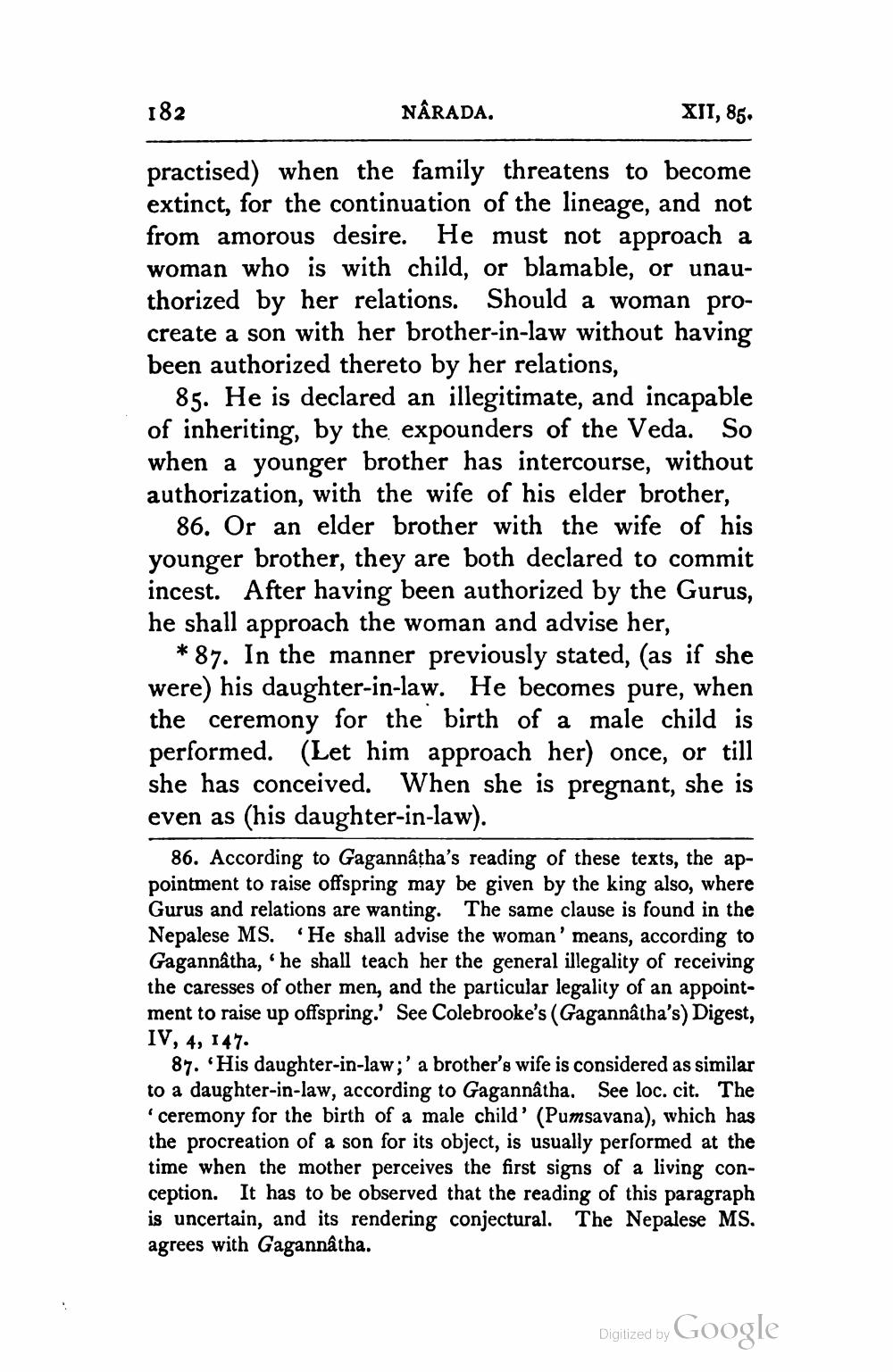________________
182
NÂRADA.
XII, 85.
practised) when the family threatens to become extinct, for the continuation of the lineage, and not from amorous desire. He must not approach a woman who is with child, or blamable, or unauthorized by her relations. Should a woman procreate a son with her brother-in-law without having been authorized thereto by her relations,
85. He is declared an illegitimate, and incapable of inheriting, by the expounders of the Veda. So when a younger brother has intercourse, without authorization, with the wife of his elder brother,
86. Or an elder brother with the wife of his younger brother, they are both declared to commit incest. After having been authorized by the Gurus, he shall approach the woman and advise her,
*87. In the manner previously stated, (as if she were) his daughter-in-law. He becomes pure, when the ceremony for the birth of a male child is performed. (Let him approach her) once, or till she has conceived. When she is pregnant, she is even as (his daughter-in-law).
86. According to Gagannatha's reading of these texts, the appointment to raise offspring may be given by the king also, where Gurus and relations are wanting. The same clause is found in the Nepalese MS. “He shall advise the woman' means, according to Gagannatha, 'he shall teach her the general illegality of receiving the caresses of other men, and the particular legality of an appointment to raise up offspring.' See Colebrooke's (Gagannatha's) Digest, IV, 4, 147.
87. 'His daughter-in-law;' a brother's wife is considered as similar to a daughter-in-law, according to Gagannatha. See loc. cit. The
ceremony for the birth of a male child' (Pumsavana), which has the procreation of a son for its object, is usually performed at the time when the mother perceives the first signs of a living conception. It has to be observed that the reading of this paragraph is uncertain, and its rendering conjectural. The Nepalese MS. agrees with Gagannatha.
Digitized by Google




